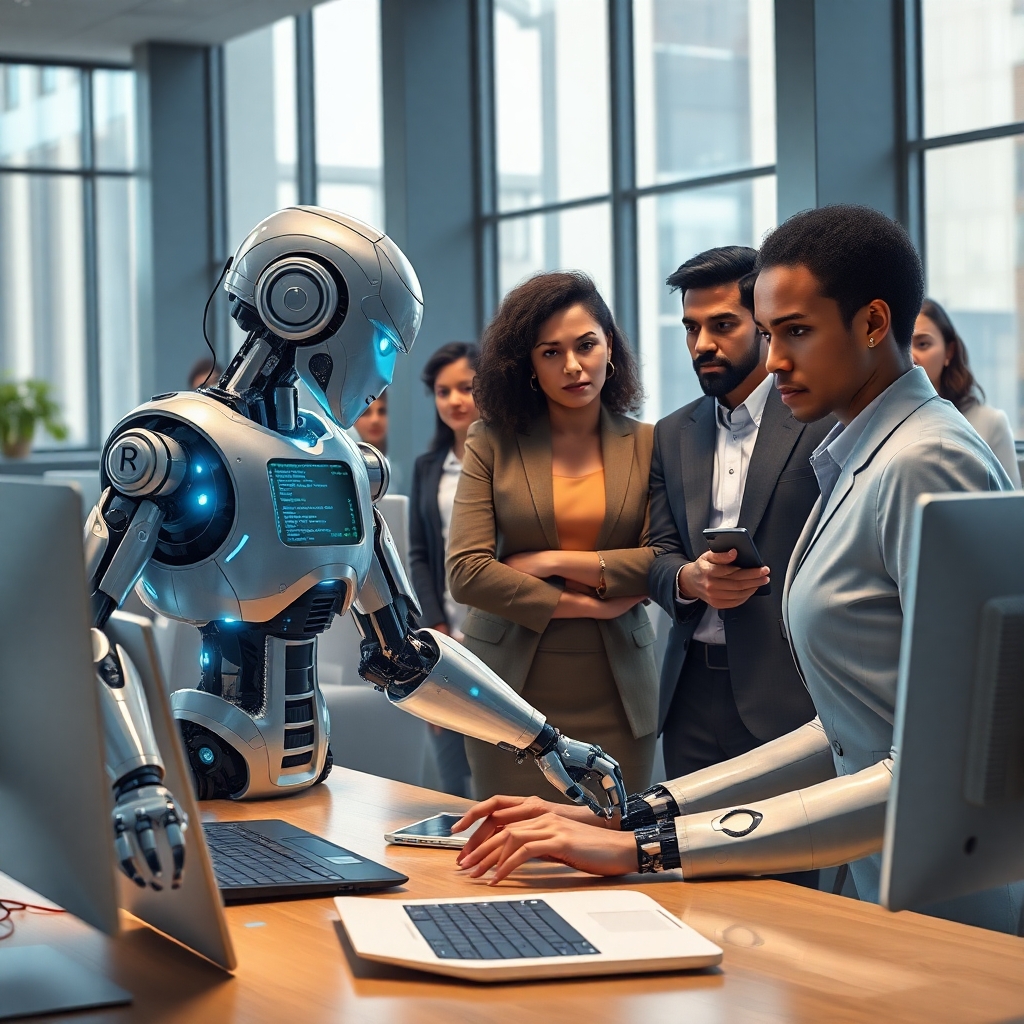Amazon CEO Confirms: AI Is Shrinking White-Collar Jobs
In a recent and unusually candid statement, Amazon CEO Andy Jassy acknowledged that artificial intelligence is directly contributing to a shrinking white-collar workforce at the company. His comments have added fuel to a conversation that’s been gaining traction in boardrooms and tech circles for years: AI isn’t just enhancing work—it’s actively replacing certain types of it.
What was once theory is now corporate reality. As AI tools become more capable, they’re taking on tasks that used to fall squarely in the hands of well-paid professionals, shifting the landscape of work across entire industries.
AI Moves from Support to Substitution
Speaking at Amazon’s latest annual shareholder meeting, Jassy explained that the company has made deliberate decisions to weave AI into the fabric of its daily operations. And not just as an enhancement — in many areas, he said, it’s taking over.
“We’re seeing tangible efficiencies in areas like legal review, customer support, HR, and parts of our cloud services,” he said. “With those efficiencies come fewer manual steps—and fewer people needed to do them.”
While previous layoffs at Amazon were largely tied to post-pandemic overexpansion, Jassy’s statement makes it clear that AI has become a core reason for the company’s ongoing restructuring.
A Broader Trend in the Tech World
Amazon isn’t alone. Across the tech industry and beyond, companies are accelerating their use of generative AI to handle cognitive work once reserved for skilled professionals.
Take IBM, which has put a hold on hiring for jobs that AI might soon handle. Or Google and Meta, which are embedding AI assistants deep into their workflows. A 2023 report from Goldman Sachs projected that as many as 300 million jobs could eventually be impacted by AI—many of them white-collar roles.
What separates this wave from earlier automation trends is its scope. It’s not just about replacing factory workers or digitizing repetitive office tasks. Today’s AI systems can analyze trends, write reports, generate legal summaries, even draft code. The work being automated now is the kind that once required advanced degrees.
Who’s Most at Risk?
Unlike past rounds of corporate downsizing, this shift is hitting professional roles—especially those involving information handling, coordination, or communication. Among the most affected:
- Administrative support staff
- Accountants and financial analysts
- Legal assistants and compliance officers
- HR specialists and recruiters
- Customer service agents
- Marketing copywriters
- Data analysts and report writers
At Amazon, AI has already streamlined processes like internal feedback analysis, performance evaluations, and inventory forecasting—areas that previously demanded large teams.
https://www.aboutamazon.com/news/company-news

Cutting Jobs, But Not Investment
Interestingly, while Amazon trims headcount in certain departments, it’s doubling down on AI itself. Jassy made it clear: the company is heavily recruiting in areas tied to machine learning, robotics, and AI infrastructure.
Hiring priorities now include:
- AI engineers and researchers
- Robotics experts for warehouse automation
- Talent in voice tech and natural language processing
- Cloud infrastructure specialists (especially for AWS)
- Professionals in AI safety and governance
Amazon recently introduced Amazon Q, a generative AI assistant for enterprise clients, and continues investing in custom AI models to power personalized shopping, logistics, and advertising.
The message is clear: the roles being cut aren’t disappearing—they’re evolving. And they’re reappearing in technical, AI-focused domains.
Ethics and Social Tensions Rise
Of course, this pivot raises major ethical concerns. Critics warn that while companies enjoy cost savings, thousands of workers face unemployment—or must retrain for careers that require entirely new skills.
“We’re seeing a transformation that risks leaving huge segments of the workforce behind,” said one labor policy analyst. “Corporate investment in retraining has to accelerate dramatically.”
Amazon has pointed to its Career Choice Program, which covers employee education in fields like healthcare, IT, and AI. Still, many argue that such programs aren’t keeping up with the pace of change—and may not reach workers in time.
The Future of White-Collar Work
What’s clear from Jassy’s remarks is that AI’s impact on employment is no longer theoretical—it’s happening now, and reshaping the future of work in real time.
Skills rising in value include:
- Data literacy and statistical reasoning
- Prompt engineering and AI tool usage
- Machine learning fundamentals
- Ethics and tech policy fluency
- Creative problem solving and human-centered design
These aren’t just “tech jobs”—they’re the new baseline for a workforce that must learn to coexist with machines that can think, write, and decide.
Final Thoughts: A Corporate Turning Point
Amazon’s public acknowledgment marks a shift in how companies talk about AI’s real-world effects. No more vague references to “efficiency” or “optimization.” Leaders are beginning to say what’s actually happening: AI is replacing jobs. And companies are betting on it.
To some, this represents a new frontier—faster, leaner, and more precise. To others, it’s a warning sign: a glimpse of a future where career paths can disappear overnight.
As AI continues to advance, the debate can’t just be about what it can do. It must also ask: what should it do—and how do we build a future that includes everyone?
